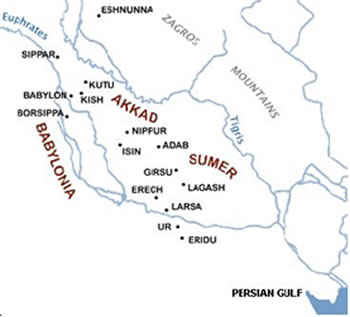sooda
Veteran Member
Besides the science already posted we know them to be myth because the flood myths are some of the oldest known stories created by man. A deity sending a flood to destroy humans goes all the way back to African religions.
Flood myths are right up there with Roswell and Big Foot.
"A flood myth or deluge myth is a narrative in which a great flood, usually sent by a deity or deities, destroys civilization, often in an act of divine retribution. Parallels are often drawn between the flood waters of these myths and the primaeval waters found in certain creation myths, as the flood waters are described as a measure for the cleansing of humanity, in preparation for rebirth. Most flood myths also contain a culture hero, who "represents the human craving for life".[1]
The flood myth motif is found among many cultures as seen in the Mesopotamian flood stories, Deucalion and Pyrrha in Greek mythology, the Genesis flood narrative, Pralaya in Hinduism, the Gun-Yu in Chinese mythology, Bergelmir in Norse mythology, in the lore of the K'iche' and Maya peoples in Mesoamerica, the Lac Courte Oreilles Ojibwa tribe of Native Americans in North America, the Muisca, and Cañari Confederation, in South America, and the Aboriginal tribes in southern Australia.
Though the account of Noah in the Hebrew Bible has long been the most studied flood story by scholars, in the 19th century Assyriologist George Smith translated the first Babylonian account of a great flood. Further discoveries produced several versions of the Mesopotamian flood myth, with the account closest to that in Genesis found in a 700 BC Babylonian copy of the Epic of Gilgamesh.[2]:20-27 The known versions of the Mesopotamian flood myths have as their protagonists Atrahasis (in the 18th century BC Atrahasis Epic), Ziusudra (in the 17th century BC Sumerian Flood Story), and Utnapishtim (in the 7th century BC Epic of Gilgamesh).[3] The Sumerian King List relies on the flood motif to divide its history into preflood (antediluvian) and postflood periods. The preflood kings had enormous lifespans, whereas postflood lifespans were much reduced. The Sumerian flood myth found in the Deluge tablet was the epic of Ziusudra, who heard the gods' plan to destroy humanity, in response to which he constructed a vessel that delivered him from great waters.[4] In the more detailed Mesopotamian accounts of the flood, the Gilgamesh flood myth and the epic of Atrahasis, the highest god Enlil decides to destroy the world with a flood because humans have become too noisy.[3] The god Ea, who created humans out of clay and divine blood, secretly warns the hero Utnapishtim of the impending flood and gives him detailed instructions for building a boat so that life may survive.[3][5]"
Africa
Many African cultures have an oral tradition of a flood including the Kwaya, Mbuti, Maasai, Mandin, and Yoruba peoples.[1]
India

The Matsya avatar comes to the rescue of Manu
- Manu and Matsya: The legend first appears in Shatapatha Brahmana (700–300 BCE), and is further detailed in Matsya Purana (250–500 CE). Matsya (the incarnation of Lord Vishnu as a fish) forewarns Manu (a human) about an impending catastrophic flood and orders him to collect all the grains of the world in a boat; in some forms of the story, all living creatures are also to be preserved in the boat. When the flood destroys the world, Manu – in some versions accompanied by the seven great sages – survives by boarding the ark, which Matsya pulls to safety.
- Puluga, the creator god in the religion of the indigenous inhabitants of the Andaman Islands, sends a devastating flood to punish people who have forgotten his commands. Only four people survive this flood: two men and two women.
List of flood myths - Wikipedia
Flood myth - Wikipedia
Thanks....

